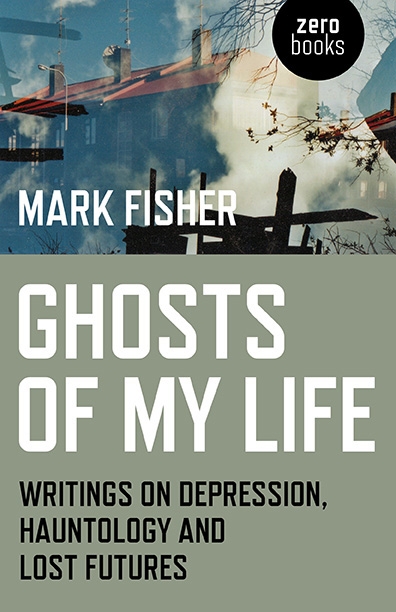To anybody paying attention over the past decade, and more especially anyone invested in the aesthetic and political afterlife of theory, the writings of Mark Fisher have felt essential if at times frustrating. From the haunted screeds that appeared on his blog K-Punk, through the untimely meditations on precarity and the administration of affect in Capitalist Realism (2009), to his generalised presence today as melancholic – better, dysphoric – provocateur, Fisher’s has been a voice of relentless intelligence and (at his best) unabashed vulnerability in terms of fleeting personal revelation. A collection of his occasional pieces promises many things, chief among them a frank appraisal of the valence today of ‘hauntology’: the concept that he copped from Jacques Derrida and which has perhaps now had its time (again) as a way of thinking about culture and politics.
This is essentially Fisher’s thing: the vestige of a future lost in half-remembered fragments from half a life ago
If there is fretful life in that philosophical spectre yet, it must surely reside in Fisher’s later turn to the realities of contemporary depression: the vivifying potential of feeling belated and bullied, the whisper at your shoulder that what might have been may yet be the dream that saves you. This is essentially Fisher’s thing when it comes to music, film and (less so) writing: the vestige of a future lost in half-remembered fragments from half a life ago. And yet, taken simply as a set of cultural coordinates, the contents of Ghosts of My Life seem remarkably comforting and familiar rather than energising, a veritable playlist of fortysomething faves. Here again are Fisher’s thoughts on Kubrick’s The Shining, Japan’s Ghosts (whence his title), the films of Chris Petit, the aftermaths of rave and jungle. We, that’s to say his contemporaries, may all agree that the Beckett-for-the-kids sci-fi TV series Sapphire and Steel (1979–82) was genuinely unsettling and worthy of resuscitation. But wait, what year is it again? 2004? Or a grey Saturday evening in England, circa 1982?
It’s unfair to censure Fisher for the specificity of these reference points – we all have our touchstones, teenage ones hardest to kick – but not for the way they restrict his view of the present, or even other pasts. At times he’s a brilliant analyst of the current occlusion of the proper strangeness and political import of past cultural artefacts, as here in his pointed critique of Tinker Tailor Soldier Spy, the 2011 film that stylishly misses the grubby purchase on history and haunting essayed by le Carré’s 1974 novel and a 1979 BBC adaptation. Elsewhere, though, you have to wonder at a critic so immured among his favoured landmarks of weird England – albeit great ones: Brian Eno and M.R. James – that he takes W.G. Sebald’s The Rings of Saturn (1995) for a botched guide to Suffolk instead of what it is: a work of imagination. (Mind you, Fisher is a writer for whom ‘literature’ is merely an insult, so he consistently overrates adolescent stuff like H.P. Lovecraft or the bloke-lit of David Peace.)
It’s a dismaying thought, given how necessary Fisher’s voice seems politically now, but what appeared ten years ago like a truly ghostly irruption of past futures into present predicaments has resolved itself in his writing into a soft canon of sorts. Or maybe it’s not so dispiriting after all, because any such anthology of past writings – mea culpa, in this regard – is necessarily also a way of putting an end to a phase in your work, preparing the ground for something more exacting. What I’d love to read from Fisher is either a sedulously researched cultural archaeology of the period to which he gives such weight, or a frankly personal and properly writerly account of his own intellectual and affective trajectory (not to speak of the question of class, on which he has lately been eloquent). It may be that those are the same project – there are strong hints of it in Ghosts of My Life.
This article was first published in the Summer 2014 issue
